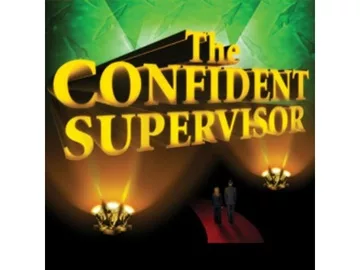“We need to talk” is a dreaded phrase. Whether in the context of our personal or our work lives, most of us have been at either the giving or the receiving end of a difficult conversation. It is probably safe to assume, unless you are on the psychopathic spectrum, that giving critique or reprimanding someone is not a pleasant experience – thus the term “difficult conversation” – but somebody’s got to do it!
Brave Difficult Conversations
If you’re a manager or supervisor, that “somebody” is probably you, and if you’re new at this, or perhaps still feel on shaky ground when having to dole out feedback to, among others, bullies, procrastinators, saboteurs, excuse-givers, and sub-par performers, a little extra help might come in handy. It was Michelle Mazur who said that, “The way you communicate in challenging times dictates whether your organization thrives or barely survives.” Therefore, being armed with effective communication techniques & skills can take the conversation from awkward and unpleasant to perhaps only mildly uncomfortable, and ensure a successful conversation that assists in solving the problem at hand.
Douglas Stone in his book on this topic, reminds us that both the supervisor calling for the conversation and the responding employee often enter a difficult exchange from varied perspectives – “Often we go through an entire conversation – or indeed an entire relationship – without ever realizing that each of us is paying attention to different things, that our views are based on different information.” It ]is for precisely this reason that sensitive matters are dealt with in a mindful fashion, thereby ensuring that enquiries are carried out in a manner that takes the other person’s perspective into account, while understanding and conveying the consequences of their actions in a clear manner.
Some useful guidelines to assist managers/supervisors in feeling more at ease with this difficult task include…
– Setting specific, detailed objectives prior to engaging with the person on the receiving end of the conversation;
– Employing appropriate counseling techniques in a consistent manner – Every good conversation starts with effective listening;
– Keeping thorough records of all engagements and interactions with involved parties;
– Ensuring prompt follow-up until the matter at hand is resolved.
The Confident Supervisor – Difficult Conversations Course
If these guidelines sound like they might provide some reprieve from a dreaded talk, then Coggno has a online training course with your name on it, specially created by Training Today for just such an occasion: The Confident Supervisor – Difficult Conversations Course.
It takes only 30 minutes to complete, but equips the course taker with some tried & tested advice that elaborate on the best ways to prepare for, engage with, and follow up on matters that require a difficult conversation.
If you’ve got to do it, you might as well do it right from the start!


















